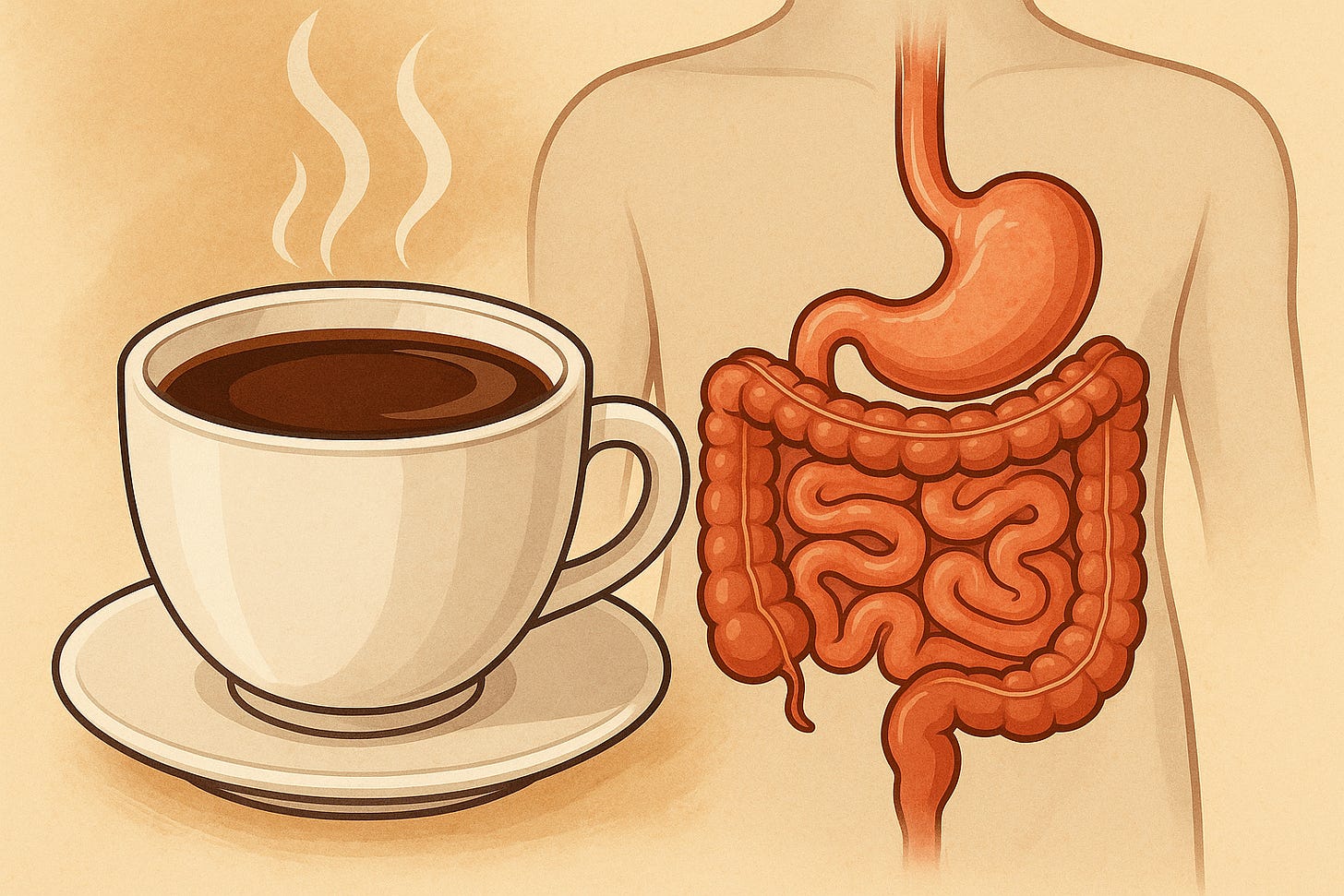Caffeine’s Sweet Spot for Gut Health May Curb Chronic Constipation
Moderate caffeine intake linked to better bowel function, but high levels may backfire except in older adults
A new study reveals a U-shaped relationship between caffeine intake and chronic constipation: consuming less than 204 mg per day may ease constipation, while higher doses increase the risk. Interestingly, in adults over 60, high caffeine consumption appears to reduce constipation risk, suggesting age-specific guidance for caffeine use may benefit bowel …
Keep reading with a 7-day free trial
Subscribe to Just Healthcare to keep reading this post and get 7 days of free access to the full post archives.


